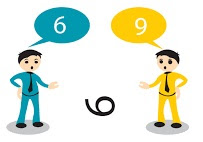Ignoring Petty Issues

What is meant by petty issues?
Petty issues are the unimportant, insignificant moments or activities that are not adding any value to our position and our standard.
For example,
some of the petty things we come across in the workplace where we spend time on it to fix it, which can be ignored or can be attended by somebody else.
- When a meaningful conversation is going on, giving attention to air temperature, noise, and start adjusting or diverting all attention towards it.
- When two people are arguing over some issues, encouraging any one of them instead of containing it
- When a team member is presenting some important proposal, try to pinpoint or correct some grammatical or numerical errors which can divert the sense of urgency or interest of the presenter.
- Taking credit of some one's contribution and not acknowledging others
- Dwelling more on gossips or assumptions or complaining or giving an opinion on matters where we do not have any influence
- Holding the information and not sharing as if we created everything
Impact of giving attention to petty things :
When you observe all the above examples those are all draining our energy or emotions from higher-level purpose or focus.
We need to more conscious about our attention towards petty things when we go up in the positional hierarchy as it affects personal and organizational productivity.
I observed some effective business heads are good at using their emotions on higher-level objectives by deliberately avoiding to get into petty issues.I had worked with one CEO who was very keen on his agenda and never allowed himself or his core team to deviate when they are meeting together. Even when some of his colleagues got into arguments over unrelated topics, the CEO used to request them to settle it outside the meeting and ensured the team on the meeting's objective. That is the consciousness of ignoring petty things and keeping the emotions on a higher-level purpose.
Some of us may misinterpret "micro detailing" and "petty" things. Micro detailing is required for personal development and also for essential issues regarding your positional status. In contrast, petty things are related to trivial stuff regarding your level and do not call for your attention.
Channeling your energy from petty things to important things need your awareness and high-level purpose!








